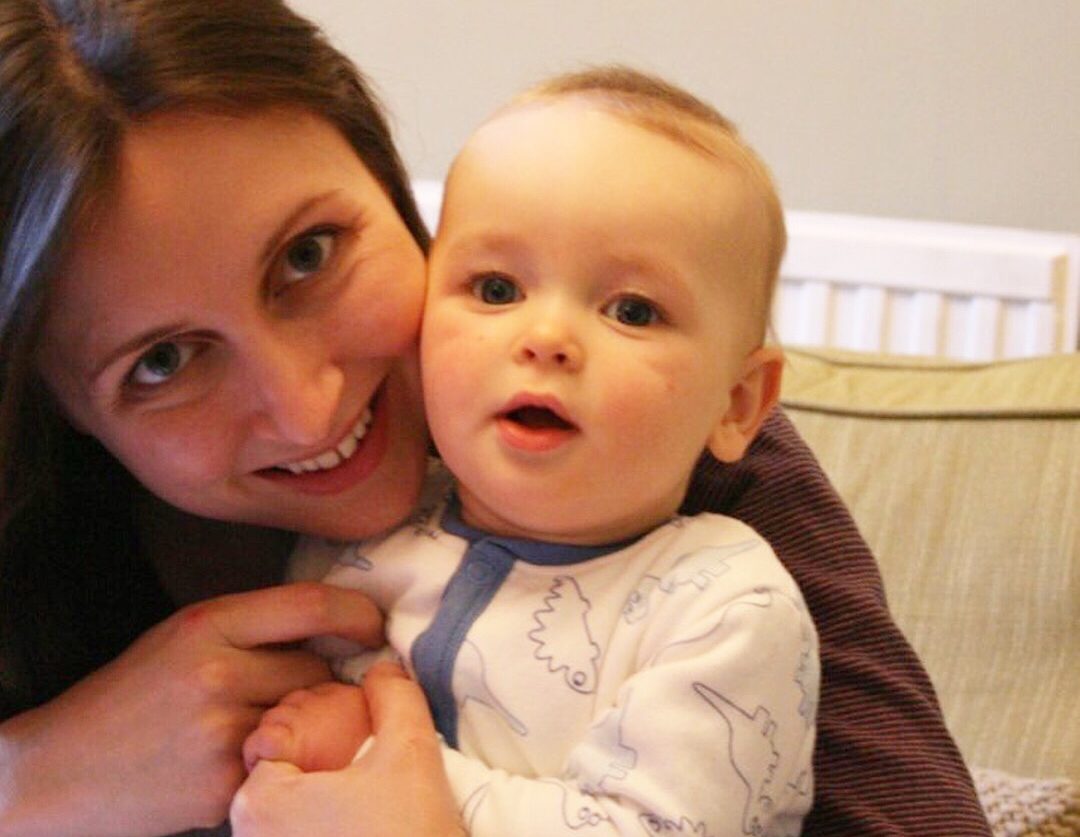
24 Apr What post-natal depression feels like.
An unexpected diagnosis.
During my third session with my therapist she told me she thought I was suffering with Post-Natal Depression. Aside from the shock, the shame and the fear of what this might mean, I was also confused. I thought women with post-natal depression struggled to bond with or feel love for their baby. This was not the case for me.
Also this was my third child, I loved him as I loved my daughters – unequivocally and from the get-go – if I was depressed now, was I depressed then?

(me and my gorgeous boy. 2010)
The answer to this un-asked question was, probably yes.
‘If I could have recognised my post-natal depression at the time my first was born I would have told you it did not feel like a lack of love or attachment to my child. I loved Amy deeply. She was perfect, healthy, beautiful. The summer she was born Natasha Beddingfield topped the charts and I sang to Amy over and over again, ‘These words are my own, from my heart flow: I love you, I love you, I love you, I love you’.
My problem was not with Amy, it was with me. I wasn’t good enough at Motherhood. There was no ease in my days… I was holding my breath and walking on tiptoe. Caring for my child well was a precarious thing. Something I could easily get wrong. Staying in control through any means necessary became imperative and anytime the day didn’t work out how I had planned; Amy missed a napped, fussed over a feed, woke too early, I felt scared, vulnerable.
A failure.’
By the time I had repeated this precarious tightrope walk three times, increasing the pressure on myself to get it right and be a better parent each time, I was, unsurprisingly, a mess. A coiled spring of nerves. The slow slide into depression – which for me manifested itself more often than not in crippling anxiety* – had done its work.
‘The relentlessness of Motherhood created a crucible for my anxiety, making it glow with a white heat I couldn’t escape.’
The aftermath
The shame that comes with a diagnosis is hard to stomach. It was difficult to remind myself of the truth my therapist repeatedly told me: I was ill and had nothing to be ashamed of. Again and again she reassured me rather than my depression revealing an inherent weakness, it actually belied a strength. I had been coping with so much for so long. I had battled on for years despite being ill.
After the shame and the question and the tears, many, many tears, I became aware of a chink of light in the darkness. A feeling I was not expecting. Relief.
Relief: If I was ill, maybe I could get well.
Relief: I didn’t have to struggle on alone, I could ask for help.
Relief: This wasn’t how it was always going to be, the future could be different.

Reader, It has been.
(Not perfect – what even is that? But good. And so much better and more enjoyable and fulfilling this side of a diagnosis. Do not fear admitting you need help, it could be the best first step you take.)
*In many ways it really doesn’t matter whether the diagnosis was post-natal depression, or simply depression, or generalised anxiety disorder (I had symptoms of all three). This is not uncommon. I fluctuated between feeling despair and hopelessness with a lethargy that was overwhelming, and feeling so anxious I could not sit still, adrenalin coursing through my body, the desire to escape, or run away all-consuming. If you want to read more about the links between anxiety and depression this is an article I have found helpful.
This is only part of my story.

If you want to know more about my story from diagnosis through to recovery, I have written all about it in my book; How Not To Be Good. Most recent reader review:
“It’s like you have climbed into my head and articulated my exact thoughts/feelings/worries. THANK YOU – for being brave enough to do it, for going through it and for sharing it”
If you are interested in learning more about or purchasing a copy of my book you can find all the information here.
No Comments